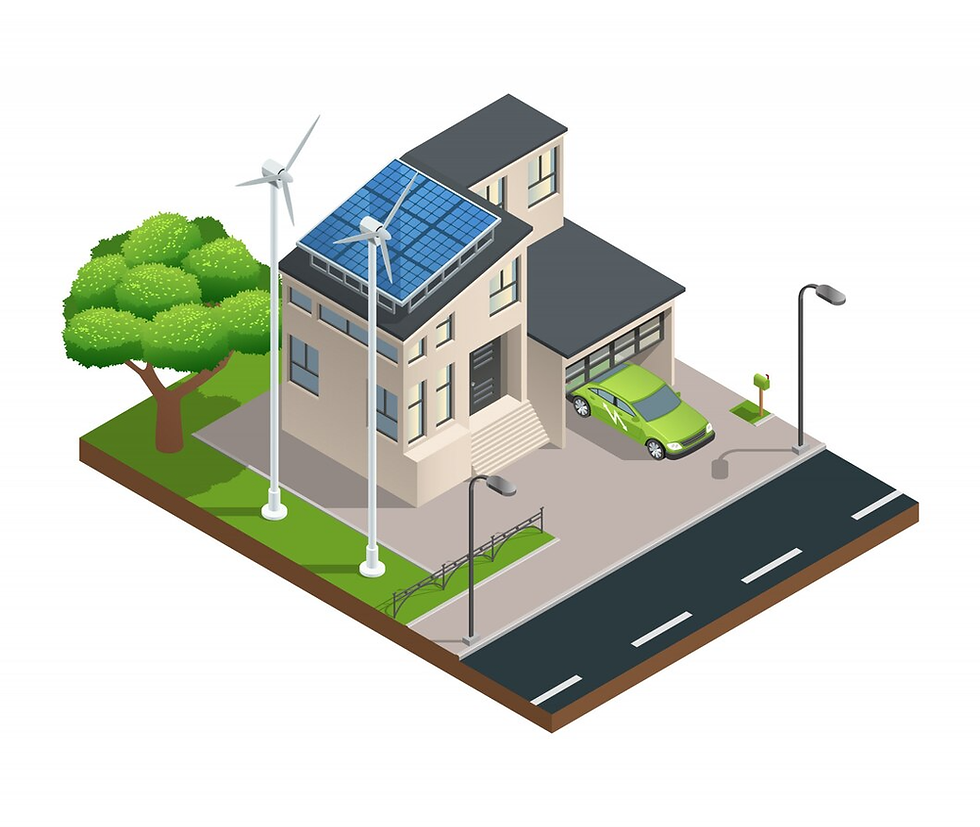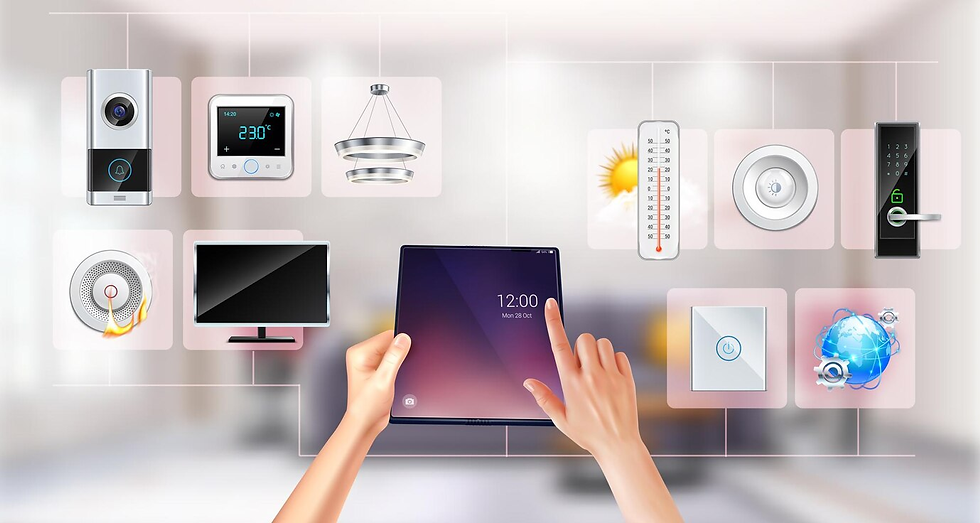Top 10 Ways to Make Your Home Sustainable
- Trupti Doshi

- Mar 2, 2025
- 4 min read
Updated: Apr 24, 2025

Sustainability in home design is no longer just a trend—it’s a responsible choice that benefits both the environment and your long-term living costs.
With rising energy demands and increasing awareness about climate change, homeowners are actively seeking ways to create a sustainable home that reduces carbon footprints while enhancing comfort.
But where do you begin? The key to building an environmentally friendly home lies in small, impactful choices. From optimizing energy use to selecting the right sustainable building materials for homes, every decision shapes a greener future.
At Auroma Architecture, we integrate thoughtful solutions into our designs, ensuring homes are not only efficient but also aesthetically timeless.
What Is a Sustainable Home?

A sustainable home is designed to minimize environmental impact while maximizing energy efficiency, comfort, and long-term cost savings.
These homes incorporate smart design, environmentally friendly home materials, and renewable resources to reduce energy consumption and waste.
At Auroma Architecture, we focus on eco-friendly home design principles such as passive cooling, natural ventilation, and sustainable materials to create spaces that are both functional and environmentally responsible.
A well-designed sustainable home not only benefits the planet but also enhances the health and well-being of its inhabitants.
10 Ways to Make Your Home More Sustainable
Transforming your home into an eco-friendly house is not just about reducing energy bills—it’s about making conscious choices that benefit both your lifestyle and the environment. Here are 10 practical ways to make your home sustainable while enhancing comfort and efficiency.
1. Improve Energy Efficiency

One of the simplest ways to create an energy-efficient sustainable home is by optimizing power consumption.
Switching to LED lighting, upgrading insulation, and using energy-efficient appliances can significantly reduce electricity bills.
Our Passive Cooling Residence showcases how strategic architectural design can lower dependence on artificial cooling, making the space naturally comfortable.
2. Opt for Renewable Energy Sources

Installing solar panels for sustainable housing is an investment that pays off over time. They generate clean energy, cutting down utility expenses.
At Gratitude Eco Villa, we integrated solar solutions to support off-grid living while maintaining a seamless blend with nature.
3. Reduce Water Consumption

Water is a precious resource, and incorporating water-efficient homes means utilizing low-flow fixtures, rainwater harvesting, and greywater recycling. Simple changes like aerated faucets and efficient irrigation systems make a noticeable difference.
4. Choose Sustainable Building Materials

Using sustainable building materials for homes such as bamboo, reclaimed wood, and rammed earth reduces environmental impact while enhancing durability. A self-sustainable ecological home benefits from these materials, ensuring longevity while minimizing its carbon footprint.
5. Minimize Household Waste

Adopting a sustainable household approach involves reducing, reusing, and recycling materials. Composting kitchen waste, repurposing old furniture, and choosing minimal-packaging products can drastically lower landfill contributions.
6. Enhance Indoor Air Quality

A sustainable household isn’t just about energy—it’s also about well-being. Using non-toxic paints, natural ventilation, and air-purifying plants ensures better air quality indoors.
Materials like lime plaster, used in several Auroma Architecture projects, actively improve air circulation and maintain humidity levels.
7. Optimize Heating and Cooling Systems

Designing for green building home design means leveraging passive strategies like cross-ventilation, thermal mass, and shading elements. Features like Fly Ash Brick with Rat trap Bond, used in the Gratitude EcoVilla, help regulate temperature without relying on excessive air conditioning.
Interesting Reads: 10 Incredible Benefits of Green Building You Need to Know
8. Adopt Smart Home Technology

Integrating high-tech eco-friendly homes with smart thermostats, automated lighting, and energy monitoring tools boosts efficiency. Smart controls ensure that energy is only used when needed, making daily living more eco-friendly.
9. Create a Sustainable Garden

Landscaping with native plants, setting up a permaculture garden, and using rainwater collection systems support biodiversity. The Biodiversity Courtyard House incorporates sustainable landscaping to complement its sustainable home design.
10. Make Sustainable Lifestyle Choices

Beyond architecture, everyday habits define sustainability. Opting for locally sourced materials, reducing single-use plastics, and prioritizing second-hand goods contribute to ways to make a home sustainable approach that lasts for generations.
Interesting Reads: What is Sustainable Construction & Its Importance
Types of Sustainable Homes
Sustainability isn’t a one-size-fits-all approach. Homeowners can choose from different types of sustainable homes, including:
Passive Solar Homes: Designed to maximize natural sunlight and heat retention.
Net-Zero Homes: Generate as much energy as they consume through renewable sources.
Earth-Sheltered Homes: Built partially underground for natural insulation.
Tiny Homes: Compact, efficient spaces that reduce material usage.
Each style integrates types of eco-friendly homes suited for specific climates and needs.
Long-Term Advantages of an Eco-Friendly House
From energy savings to environmental impact, the benefits of an eco-friendly house extend beyond just financial gains. Here are a few
Lower Utility Costs: A well-designed sustainable home reduces energy and water expenses.
Healthier Living Spaces: Natural materials improve indoor air quality and well-being.
Durability: Sustainable materials often outlast conventional ones, reducing long-term maintenance.
Increased Property Value: Buyers prioritize the advantages of an eco-friendly house, making green homes more desirable.
Conclusion
A sustainable home isn’t just good for the planet—it’s a smarter way to live. By adopting ways to make a home sustainable, you can reduce waste, save energy, and enhance well-being.
Every small step adds up to a greener future. Start your journey today!
Get Your Sustainable Home with Auroma Architecture
At Auroma Architecture, we specialize in creating spaces where tradition meets sustainability. Whether designing a passive cooling system or integrating sustainable building materials for homes, our projects are committed to responsible architecture.
Ready to make your home eco-friendly? Contact us today to explore how we can bring your vision to life with designs that prioritize efficiency, beauty, and longevity.


.webp)








